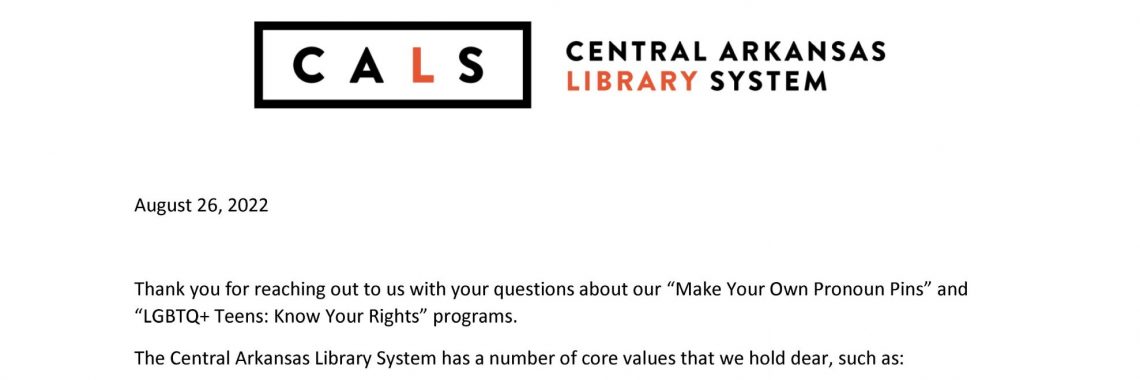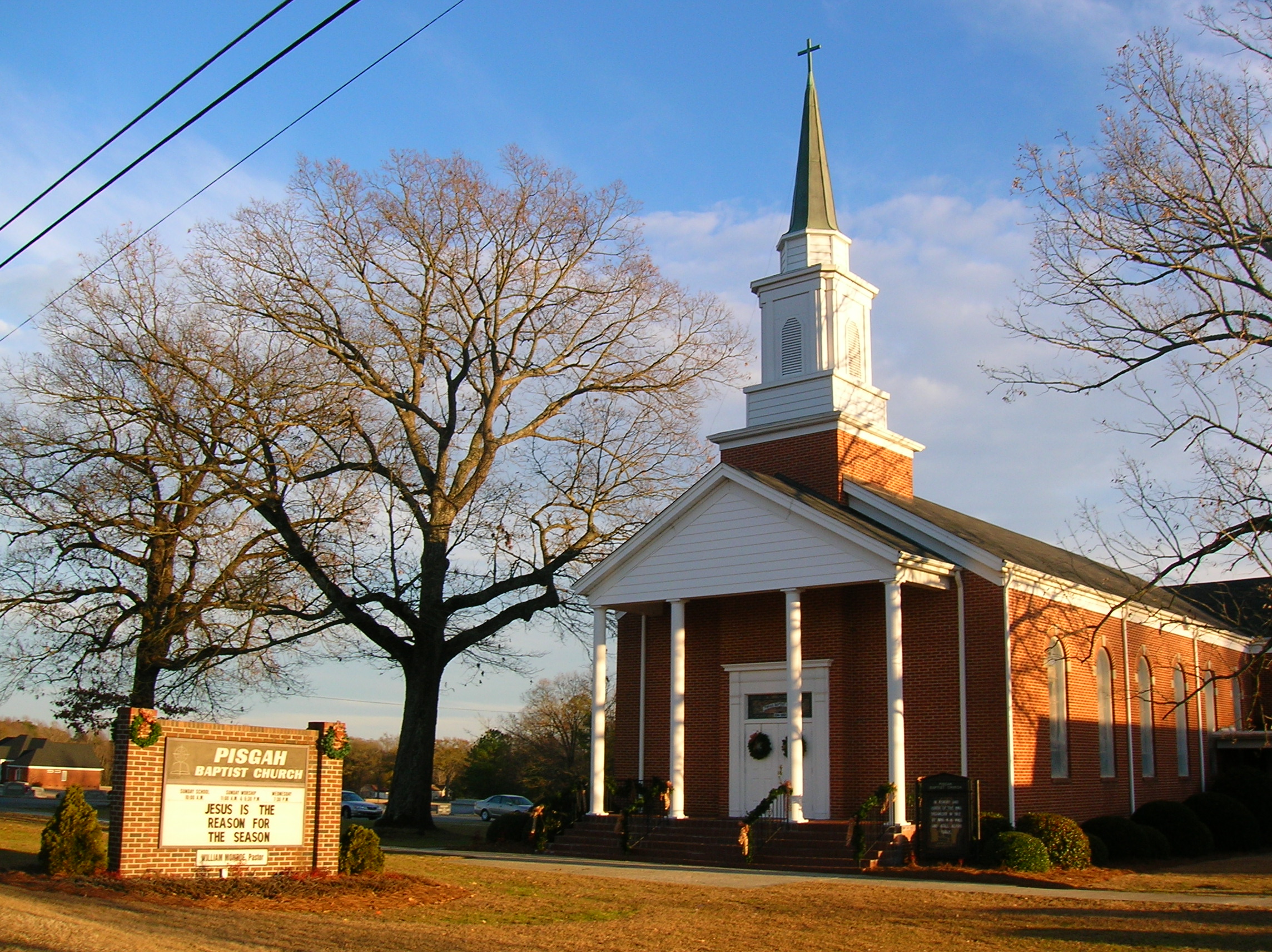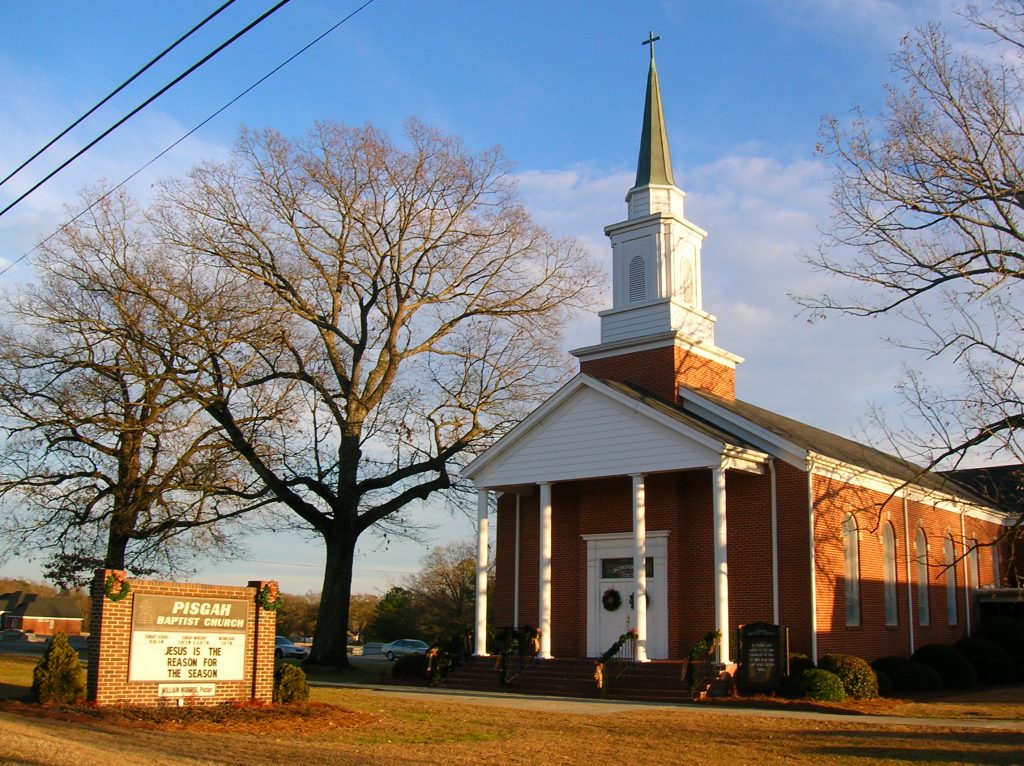Central Arkansas Library System Defends LGBT Programs

On Friday the Executive Director for the Central Arkansas Library System (CALS) issued a statement defending two pro-LGBT programs scheduled at libraries in Little Rock.
An event called “LGBTQ+ Teens: Know Your Rights” at the Main Library downtown originally was scheduled to take place last week, but has been postponed.
An event called “Make Your Own Pronoun Pins,” where teens craft pins displaying their preferred pronouns, is scheduled to take place at Terry Library in Little Rock on Monday.
Both events are geared toward youth in central Arkansas.
In a statement issued Friday, CALS defended the programs, noting that “neither of these programs is ‘sexual’,” and that the programs are funded in part by the Arkansas LGBTQ+ Advancement Fund at the Arkansas Community Foundation, the Alice L. Walton Foundation, Olivia and Tom Walton through the Walton Family Foundation, and the Winthrop Rockefeller Foundation.
In March Family Council reported that the Arkansas Community Foundation awarded a grant to the Central Arkansas Library System to set up a Gender and Sexualities Alliance (GSA) for teens and young adults. The money is part of a $1 million fund that the Walton Family Foundation created to support pro-LGBT groups in Arkansas.
Even though the programs at the Central Arkansas Library System are not overtly “sexual,” they still promote LGBT ideology to children at a public library.
Libraries don’t have to form Gender and Sexualities Alliances or organize pro-LGBT seminars to be successful. They can house books and promote reading and education without these types of events.
These activities are simply unnecessary.
Below is a full copy of the statement CALS issued on Friday.
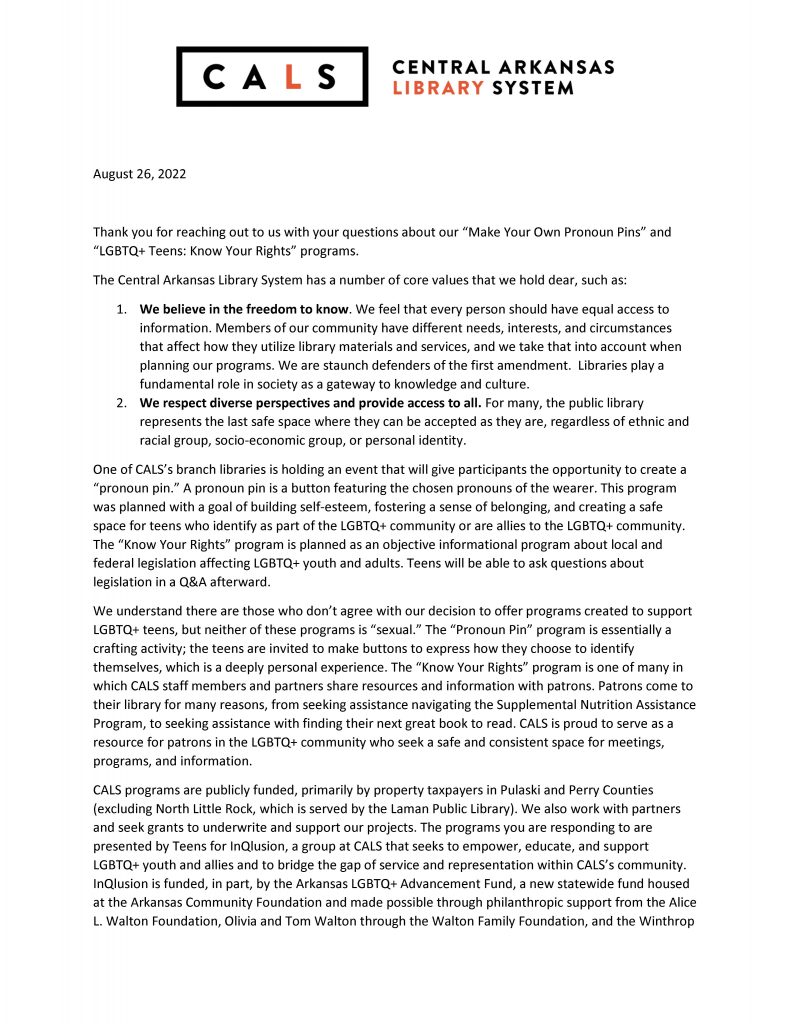
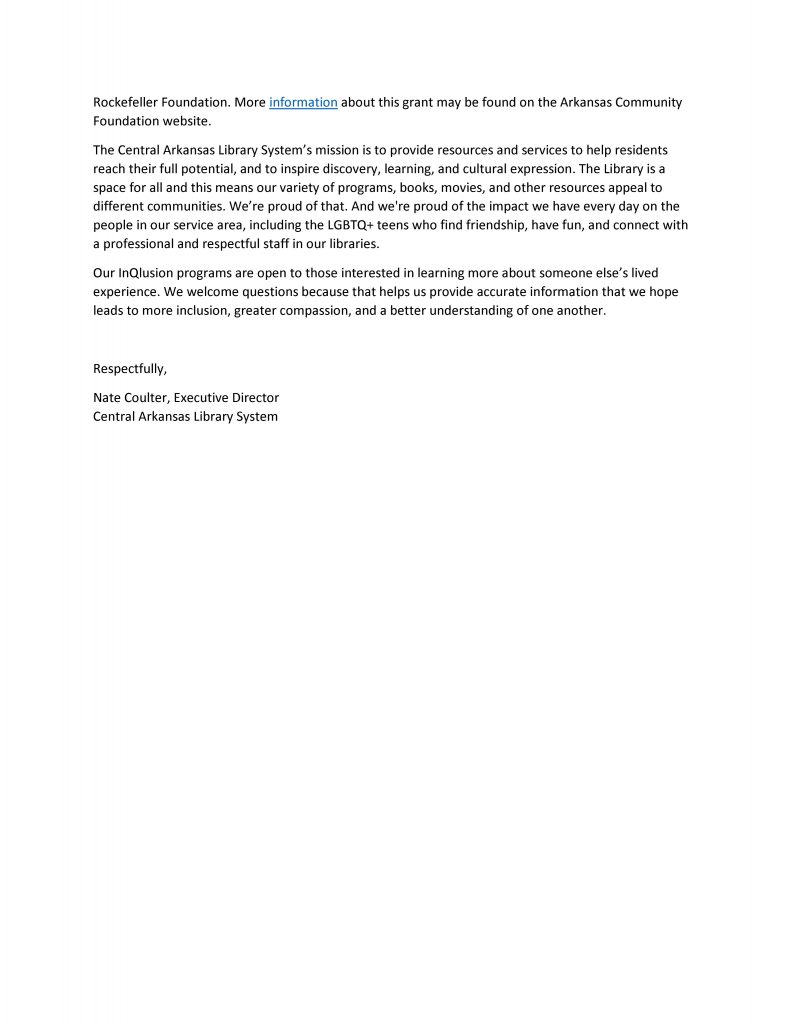
Articles appearing on this website are written with the aid of Family Council’s researchers and writers.

